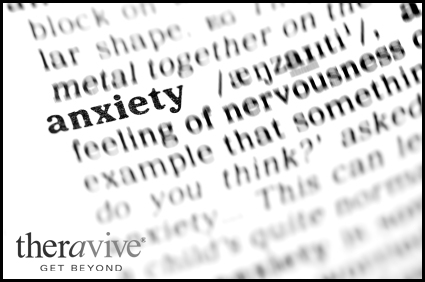January 18, 2014
by Saranya Tracey, M.A.

Once you become aware of the issues behind your avoidance behavior or defensive mechanisms, like denial, obsession (e.g., isolating a thought), or displacing your anger onto another person or situation, you will be able to change your responses and gradually, anxiety will not be a problem.
[More]
January 17, 2014
by Casey Truffo, LMFT

It’s all too human to avoid the messes in our lives, literally and figuratively, when they seem too overwhelming to confront. It’s also unhealthy.
[More]
At the early stages of a relationship, getting into a fight resembles a small crack in a water dam. Initially, the crack can be easily fixed, but with the passing of time, the water penetrates the crack and widens it.
[More]
December 5, 2012
by Gloria Day

Chapter 6 Common Boundary Myths
“…AND I will NOT accept your guilt trips ANY MORE!!! They are NOT welcome in my HOME! If you want to leave you can!...”
Do you know what that is?... DRUM ROLL PLEASE….
That is a Boundaryless women starting to set boundariesand oh boy is it ugly! Most of you can guess that was my mother I was talking to and many of you either have had, wish you could have, OR should have that conversation with that wonderful woman we call Mom!
This chapter really started to make sense while in the midst of working on setting some new boundaries. Which by the way really does not come easy to me. ..
In fact, later in the day my ‘loving’ mother says something about how I really should learn to control my emotions…adding insult to injury as I had already brought on the guilt trip for sticking up for myself. What I got to experience first had is Boundary Myth #5: Boundaries Mean That I Am Angry.
Quote from page 116:
It’s no secret that quite often, when people begin telling the truth, settling limits, and taking responsibility and “angry cloud” follows them around for awhile. They become touchy and easily offended, and they discover a hair-triggered temper that frightens them. Friends will make comments like, “You’re not the nice, loving person I used to know.” The guilt and shame caused by these remarks can further confuse new boundary setters.
The chapter goes on to explain that anger is a sign we need to move forward to confront the threat and the violation. Years of constant boundary violations do generate some anger and sometimes we have shoved these feelings down!
So if there is anything this chapter has done for me is validated I am in the right direction! It is NOT easy especially with a 33 year relationship to start to set healthy and biblical boundaries!
A Myth is fiction that looks like a truth:
Here are some of the other Myths about Boundaries this chapter exposes. Check to see which ones you believe
1) If I set Boundaries, I’m being selfish
2) Boundaries are a sign of disobedience
3) If I begin to set boundaries I will be hurt by others
4) If I Set boundaries I will hurt others
5) Boundaries mean that I am angry
6) When Others Set Boundaries In Injures me
7) Boundaries Cause Feelings of Guilt
8) Boundaries are Permanent and I’m Afraid if Burning My Bridges
We are now finished "PART ONE: What are Boundaries?"
WE DID IT!!! YES!!!
On to "PART TWO: Boundary Conflicts"
Reference: Cloud, H., & Townsend, J. (1992) Boundaries: When to say Yes, When to say No; to take control of your life. Grand Rapids, Michigan: Zondervan.
November 22, 2012
by Gloria Day

So I am still struggling with this material. I am finding it very heady and not so much about practical application at this time.
Chapter three I think in the title sums up pretty much where I am at “Boundary Problems”
And here is what they had to say.
We assume the person who has trouble setting boundaries is the one with the problem but often it is the one who does not keep others boundaries who has issues
There are Functional Boundaries referring to completion of tasks ie with time management , performance, and discipline
There are Relational Boundaries which involves speaking the truth to others we are in relationship with.
4 types of Boundary Problems:
1) The Compliant: They cannot say “NO”, they feel guilty and or controlled by others and can’t set boundaries. These people melt into the demands of others. They may have had parents who taught boundaries were bad. Their spiritual and emotional radar is broken and they cannot guard their hearts. Fear stops the compliant from saying no. They will say yes to the bad because saying no will cause more guilt.
2) The Nonresponsive: Can’t say “YES”, they will set boundaries against responsibility to love. They may have a critical spirit or be very self-absorbed in their own issues.
3) The Controller: Can’t hear “NO”, they aggressively or manipulatively violate boundaries of others. No means maybe and maybe means yes. They resist taking responsibility for their own lives so they try to control others. They are actually emotionally isolated as people stay with them out of fear.
4) The Avoidant: Cannot hear “YES”. Sets boundaries against receiving care of others. They withdraw and do not ask for help. Their walls do not have gates they will not let anyone in. A Compliant Avoidant has reversed boundaries they have none where they need them and some where they should not be.
So which type of boundary problems do you have?
I would say for myself I actually have a bit of all. I think as I fail in one area I then pull out a new tactic. Overall, I would say I am a compliant and the guilt and shame associated with setting a boundary makes me feel selfish and not responsible. I know this is wrong and I do believe this is tied into my need to be validated. What I am saying is, if I were to set a boundary that someone may not like then I would risk…well…not being liked by them…
Just look at this world we live in; it is set up on a structure of validation. Take Facebook for example, when was the last time you posted something and got a warm fuzzy when the number of “likes” grew. We live in a culture that teaches us to look "out" to get validation.
I believe as we delve deeper into our boundary issues, we will see it comes down to self-worth…and we cannot tackle the issue of self-worth without looking to the One who created us and to see what He says about us…here a few nuggets to mediate on:
We are God's workmanship, created in Christ Jesus to do good works, which God prepared in advance for us to do. Ephesians 2:10
No, despite all these things, overwhelming victory is ours through Christ, who loved us. And I am convinced that nothing can ever separate us from God’s love. Neither death nor life, neither angels nor demons,[a] neither our fears for today nor our worries about tomorrow—not even the powers of hell can separate us from God’s love. 39 No power in the sky above or in the earth below—indeed, nothing in all creation will ever be able to separate us from the love of God that is revealed in Christ Jesus our Lord. Romans 8:37-39
Even before he made the world, God loved us and chose us in Christ to be holy and without fault in his eyes. Ephesians 1:4
April 26, 2010
by Debra Bacon

By Debra Bacon
Theravive.com Contributor
Simply defined
Communication simply defined is: “the exchange of thoughts, messages, or information, as by speech, signals, writing, or behavior.”
Communication is very important in all aspects of our lives. The way we interact with our colleagues, peers and managers is important from a professional standpoint. Often, when considering improving our communication skills, we tend to think about our techniques in this realm. After all, it is our livelihood.
However, there are many areas of our lives where communication is as important, if not more as that of the professional relationship. That is the way we speak, move, act or otherwise signal our spouse, partner, children, family members and friends. Moreover, our way of interaction with the general public is very significant.
Let’s talk, blog, bleep, or otherwise say
Today, we have multiple ways to communicate from the face-to-face conversation, to email, IM, skype, Facebook, cell phones and many, many more. Developing effective communication skills is an ever evolving process. Flexibility and compromise are essential in communication today.
The way we relay thoughts, messages or information warrants serious analysis. Let’s take a look at five key areas that can be very effective in the way we communicate with others, whatever form of communication we are using. They are: a two-way flow of conversation; actively listen; rapport building; positive focus and honesty.
Two-way flo w of conversation: A conversation, whether verbal or written should always be balanced. Both people should contribute to the conversation to feel validated. If you have a problem talking too much, interrupting or dominating conversations try this exercise. Open your mind to what the other person is saying. Quiet the thoughts running through your head. Try not to formulate a rebuttal before the other person has finished their thought. Yours will be incomplete and likely inconsiderate.
Actively listen: It is important to hear what the speaker is saying. Take mental notes of important points in the conversation. If you are simply staring at someone and do not comprehend what they are saying, there may be an underlying cause. Perhaps you are tired, stressed or emotionally absent. Search for the reason and get help overcoming the problem. Otherwise be engaged with the speaker. Try this exercise to help you actively listen.Be attentive to the communication skills or style of someone you respect, and practice what you have noticed. Begin to apply the techniques in your own life with others.
Rapport building: It is important to build trust or a common ground with those to whom you communicate. Try this exercise when building rapport.Offer a solid handshake along with a friendly smile when introducing yourself, or greeting someone. Be aware of your body language. Lean forward a bit, it shows you are interested. If the speaker is sitting, if appropriate, you should sit also, being eye level puts you on an equal plane. And lastly, make eye contact.
Positive focus: Life hands us ups and downs and it is okay to share that at times; however, try not to be a complainer. Try this exercise to offer positive reinforcement.Always lead into a conversation with a positive statement about what is right in a situation, prior to launching into the negative aspects. You will find people respond better when they are acknowledged for what they have done right, or hear what is good about a situation.
Honesty: Always be honest and try not to drum up flattering insincere words. People will pick up on this and will not take you seriously. Try this exercise to assist you in being forthright and honest. Avoid using words that are designed to manipulate others to get what you want. Be honest about what you want. Speak directly with confidence. This will leave others feeling you have their best interest in mind. It leaves them with a choice without feeling guilty.
These same exercises can be applied in the written form of communication as well. Paying attention to tone is key when writing. It is more difficult to catch the tone of someone’s meaning without hearing their voice, or looking at them for cues. Brush up on your written skills as necessary.
March 31, 2010
by Christie Hunter

How can I tell if my marriage is in trouble?
[More]